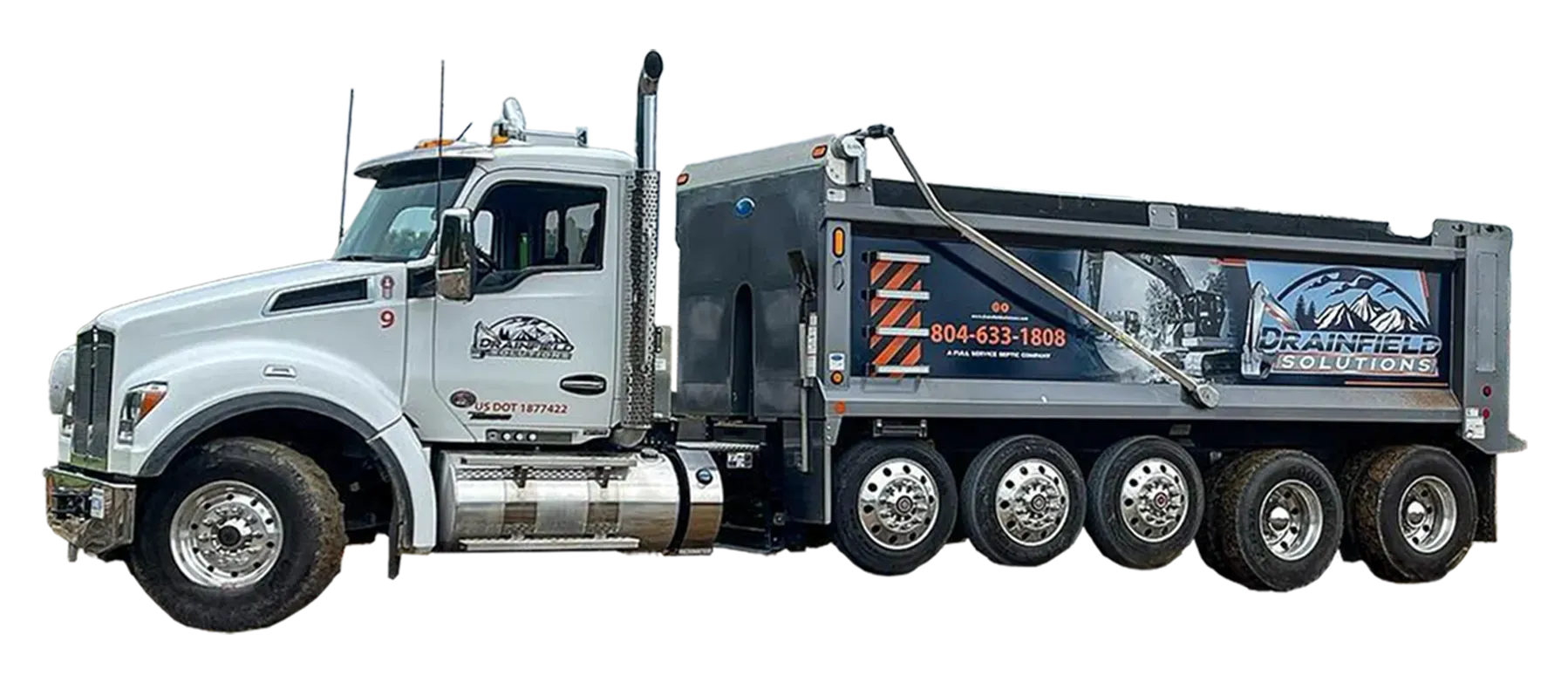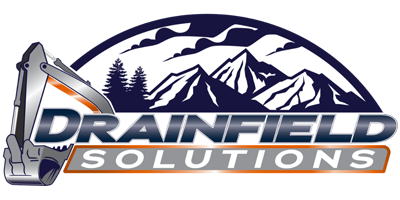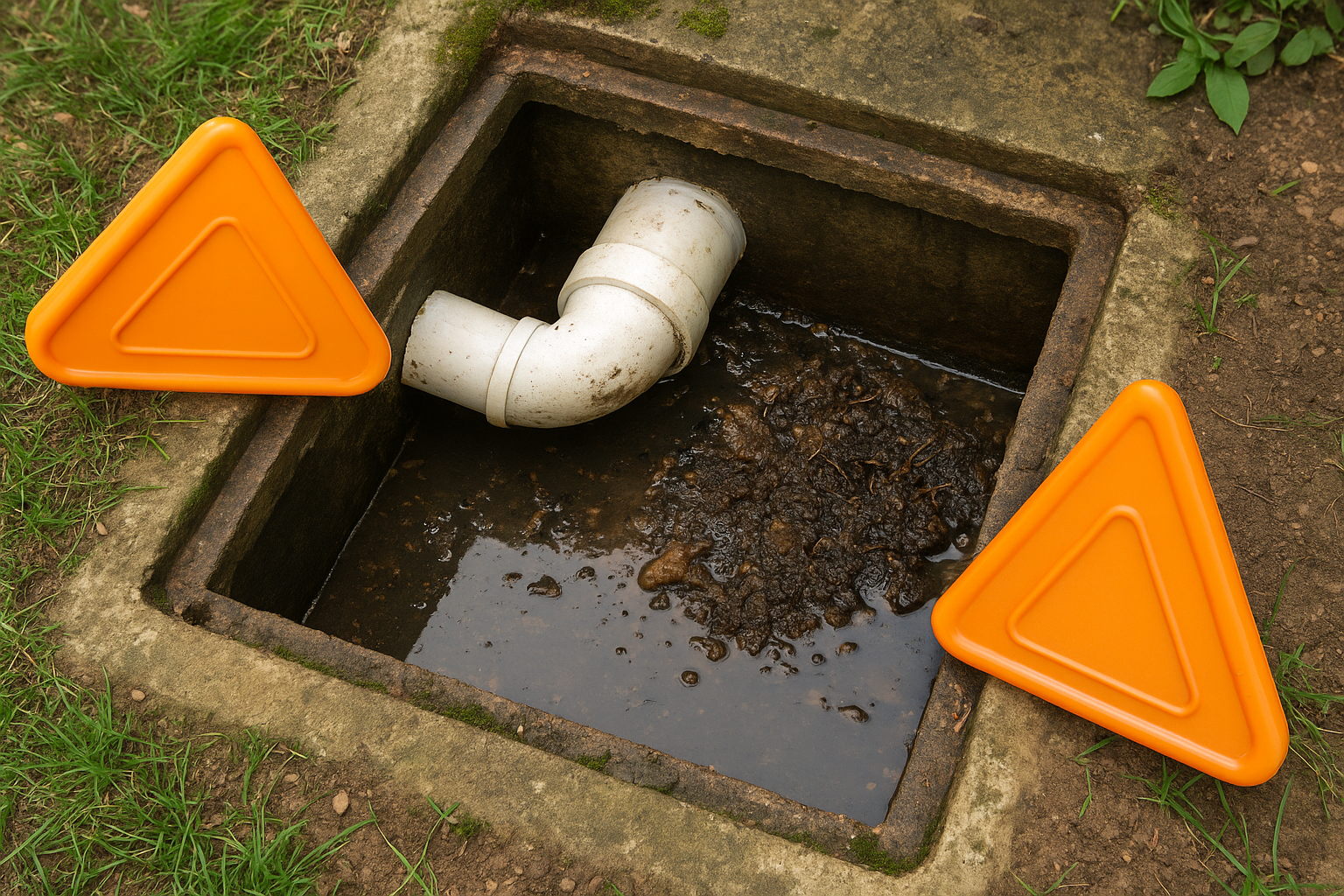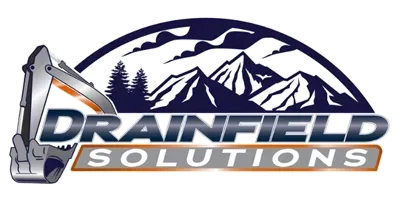
6 Factors That Will be Considered When Designing a Septic System That Meets Your Property’s Needs
December 21, 2024
Proper septic system design is crucial for the functionality and sustainability of any property that relies on an on-site wastewater solution.
Whether you’re developing a new home or upgrading an existing system, working with a septic system professional in planning your septic system carefully ensures compliance with local regulations, minimizes environmental risks, and maximizes service lifespan.
This guide will walk you through the essential steps that a septic system professional will use to design a septic system that suits your property’s unique requirements.
By the end, you’ll understand the components of a well-thought-out system and learn the importance of consulting professionals, such as experienced septic system installation contractors, for efficient and effective implementation.
What is a Septic System and Why is Design Important?
A septic system is a self-contained wastewater treatment setup, typically used in rural or suburban areas where municipal sewage systems are unavailable. It consists of a septic tank and a drain field (or leach field) to process and dispose of household wastewater.
Effective design is more than just ensuring waste is removed from your property. It involves choosing the right type of septic system based on terrain, soil conditions, property size, and water usage.
Ignoring proper design could lead to costly problems like frequent septic tank and drain field repairs, environmental contamination, or even system failure.
Key Factors That will Be Considered When A Septic Professional Designs Your Septic System
1. Understanding Local Regulations
Septic systems are highly regulated, as improper installation can lead to environmental damage and public health risks. Begin by researching your local health department or environmental agency's rules, which often dictate:
- Minimum distance from water sources, buildings, and property lines
- Types of approved septic systems
- Permitting requirements
- Soil testing and inspections
Failing to comply with these regulations can result in fines, project delays, or system rejection.Your local septic system professional will be well versed on these regulations.
2. Perform a Site Evaluation
Every property has unique characteristics that influence septic system design. Your local septic system professional will work with the appropriate professionals to understand the:
- Soil Type: Your soil must absorb and treat effluent properly. Sandy soils, for example, drain quickly and may require additional filtration layers, while clay-heavy soils drain slowly and may need alternative solutions.
- Percolation Rate: During a “perc test,” professionals assess how quickly water drains through your soil. Percolation rates are critical for designing the drain field and determining the size required.
- Topography: Slopes and elevation can impact where your system is located and whether you’ll need pumps to move wastewater uphill.
- Water Table Level: Septic systems need ample separation from groundwater to prevent contamination.
3. Choose the Right Septic System Type
There’s no one-size-fits-all approach when it comes to septic systems. Here are common types and their uses:
- Conventional Gravity Systems: The most basic setup uses gravity to transport wastewater from the septic tank to the drainfield. Best suited for properties with appropriate soil conditions and slight slopes.
- Pressure Distribution Systems: These systems use pumps to distribute effluent evenly across the drainfield, making them suitable for uneven terrains.
- Aerobic Treatment Units (ATUs): These advanced systems add oxygen to the wastewater treatment process, improving efficiency in areas with poor soil drainage or strict environmental regulations.
- Mound Systems: Used for properties with high water tables or shallow soil, these systems elevate the drainfield above natural ground levels.
- Chamber Systems: A more flexible option for limited spaces, chamber systems rely on plastic chambers in place of gravel pipes in the drainfield.
Your septic system professionals will select the best septic system for your home and yard.
4. Size Your Septic Tank and Drainfield Correctly
The size of your tank and drain field isn’t arbitrary. These dimensions are determined by:
- Household Size: Consider the number of occupants and daily water usage. Larger households generally require larger tanks.
- Fixture Count: More bathrooms, appliances, or water-using devices like hot tubs translate to greater wastewater production.
- Future Considerations: Account for potential future expansions, like adding extra rooms or tenants. Oversizing slightly is often a wise choice for long-term functionality.
Working with septic system installation contractors ensures you accurately determine these specifications.
5. Install with Accessibility in Mind
While it may not be the first thing on your mind, accessibility for inspections and maintenance is vital. Here’s how you can design for easier upkeep:
- Tank Access Ports: Ensure these are uncovered and marked for easy pumping or inspections.
- Drain field Location: Avoid building or planting large trees over the area to prevent root damage or soil compaction.
- Monitoring Solutions: Advanced systems may benefit from sensors for effluent levels or leak detection.
6. Consider Environmental Impact
Minimizing environmental damage is a growing priority for septic system owners. Key practices include:
- Using low-phosphorus or biodegradable household cleaning products to prevent contamination
- Regular maintenance and inspections to avoid untreated effluent escaping
- Tackling septic tank and drain field repairs promptly when issues arise
Additionally, choosing environmentally friendly technologies or materials during installation can further reduce the septic system's footprint.
What Your Local Septic System Professional Offers
While some aspects of septic system design can be understood at a high level, implementation is a complex process that requires expertise. Experienced septic system installation contractors provide:
- Technical Knowledge: Professionals know how to assess your property and recommend suitable designs.
- Regulation Compliance: Contractors are versed in local code requirements, ensuring no surprises during permitting or inspections.
- Cost Efficiency: Even if hiring professionals feel like an upfront cost, it often prevents long-term expenses associated with poor installation or design.
- Post-installation Support: Many contractors offer maintenance packages, keeping your system running smoothly for years.
Take the Next Step Toward Installing a Septic System
Designing a septic system that meets your property’s needs is a highly customized process. By focusing on local regulations, and site conditions, and choosing the right system type, you can enjoy sustainable wastewater solutions for many years to come.
Hiring septic system installation contractors provides peace of mind, ensuring your setup complies with regulations and meets the unique challenges of your property. Whether you’re building a residential home or managing a commercial property, bringing in professionals early can save time, money, and environmental headaches.
Interested in upgrading your septic system or starting fresh in Central Virginia?
Contact Drainfield Solutions for reliable septic tank solutions if you live in Bowling Green, Ruther Glen, Fredericksburg, Mechanicsville, Stafford, Falmouth, Dahlgren, King George, Mineral, or Richmond! Whether you’re building a residential home or managing a commercial property, we handle septic tank pumping, septic tank maintenance, septic tank repair, septic tank installation and septic system design.
Call us at 804-633-1808 or visit www.drainfieldsolutions.com.
Share Post
Latest Posts
Ready to Take the Next Step?
Whether you're in need of a system inspection or regular maintenance, Drainfield Solutions is here to help. Get in touch today for reliable service you can trust.






